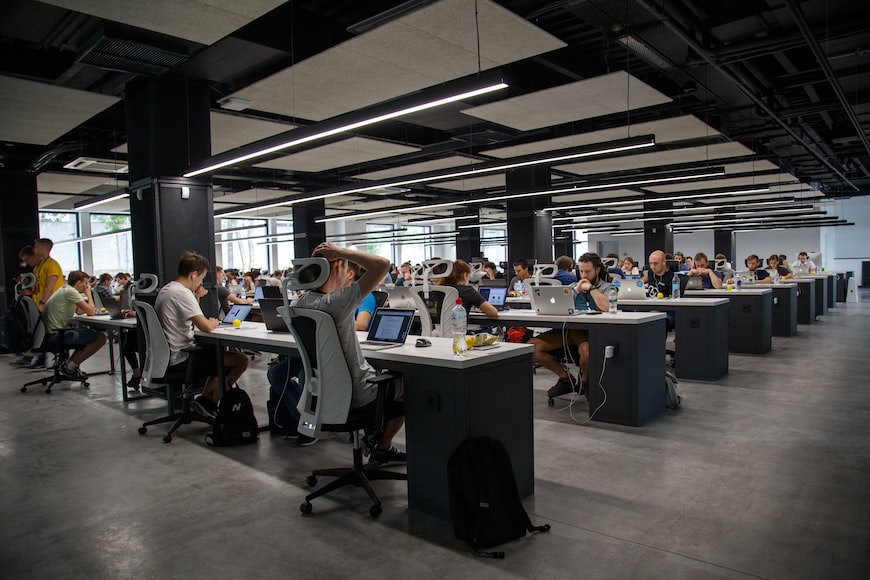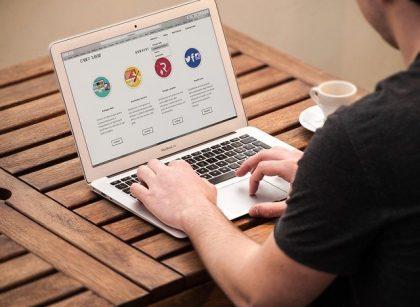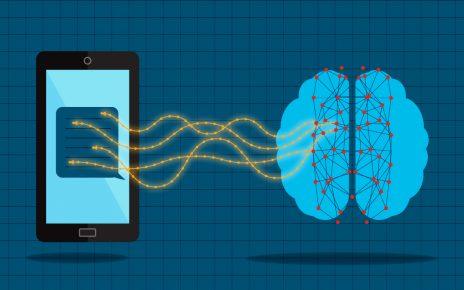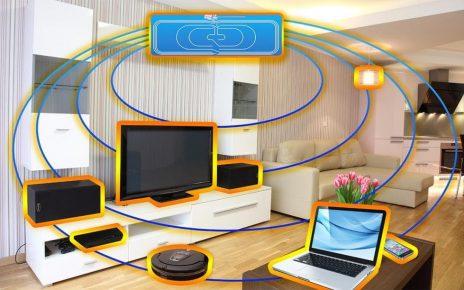Computers are developed to complete tasks that supercomputers can not accomplish.
For example, researchers want to use quantum computing to simulate the interactions of molecules, and this could lead to breakthroughs in drug manufacturing.
Applications that are driven by artificial intelligence and the processing of big data with quantum computers also impact industries positively.
How does a quantum computer work?
Today’s computers, smartphones, smartwatches, and most other smart products have one thing in common – they work with bits.
A bit can only have two points: either a [1] or a [0]. These two points are represented in the processors of today’s computers. “Power on” means [1] and “Power off” [0].
Quantum computer works with Qubits rather than bits
Quantum computers work differently from normal computers and supercomputers because they work with “qubits” – This is nothing more than a shortening of “quantum bits”.
Like a bit in a classic computer, a qubit can either be in the state [1] or [0].
It gets interesting, however, when the qubit shows its special property that the classic bit does not have:
A qubit can be in state [1] and [0] at the same time or in theoretically an infinite number of states in between.
The best way to understand this is with a coin: If it should represent a classic bit, you can put it either head or tails up, that would be a [0] or a [1].
Quantum computers can process data faster
The qubits in a quantum computer can also be quantum entangled.
If a qubit is brought into a certain state, the state of the other qubits quantum entangled with it also changes at this moment.
This happens faster than the speed of light.
Since several qubits are quantum entangled with each other, i.e. their state is dependent on that of the other qubits, therefore, the calculation in the quantum computer can also be performed faster than in light.
This is also an advantage of quantum computers over today’s computers.
Problems with the quantum computers
Regardless of the method used to create qubits, the researchers are always faced with major technical challenges.
A fundamental problem of the quantum computer is the movement of molecules.
When particles have a certain energy, they begin to move, to wiggle around.
But in order to be able to manipulate and capture them, they have to be immobilized.
The researchers, therefore, have to cool the chips on which the ion traps or circulating currents are applied almost down to absolute zero, which is defined as 0 Kelvin.
That is the lowest possible temperature, Celsius -273.15 degrees. The quantum chips approach it to within a few thousandths of a degree.
It takes days for a quantum chip to go from room temperature to its operating temperature. This requires complex and large cooling machines.
Qubits are extremely sensitive
Then the researchers struggle with the fact that the qubits are not stable.
Every smallest disturbance destroys their quantum state. They must therefore be shielded against vibrations, magnetic and electric fields, and all other possible external influences.
But no matter how well the researchers and engineers manage the shielding, qubits only remain stable for a fraction of a second.
The calculations must therefore be completed within this time.
To build really powerful and practical quantum computers, the researchers have to increase the number of qubits that work together and at the same time reduce their susceptibility to errors.
This is the only way to finish the calculations quickly before the qubits are out of control.
Quantum computers are still difficult to program
Since quantum computers work according to completely different principles than our computers today, programming has to be completely reinvented.
In quantum computers, a fundamental property of quantum physics comes into play.
Only when a qubit has been precisely measured can it be assigned to exactly one state.
When will quantum computers be in common use?
This year, for the first time, Google carried out a calculation with a quantum computer with 53 qubits, much faster than would be possible on classic supercomputers.
Some researchers are a little more reluctant, as the calculation that the Google quantum computer performed has no practical application.
It was chosen so that it can be carried out particularly well by quantum computers.
Will quantum computers replace all other computers?
As long as quantum computers have to be laboriously cooled down to near absolute zero, they will probably be more at home in laboratories or data centers.
But just as the rapid development of computer technology was not foreseen in the 1950s, just as little can we be sure about the future of quantum computers today.
According to our current level of knowledge, however, we will probably not use them for daily tasks such as word processing or playing videos for the time being.
Classic computers do this better and, above all, with significantly less effort.
Quantum computers will probably first work on tasks that classically structured supercomputers fail.
Whether they will one day completely suppress them or will complement each other in the future.













